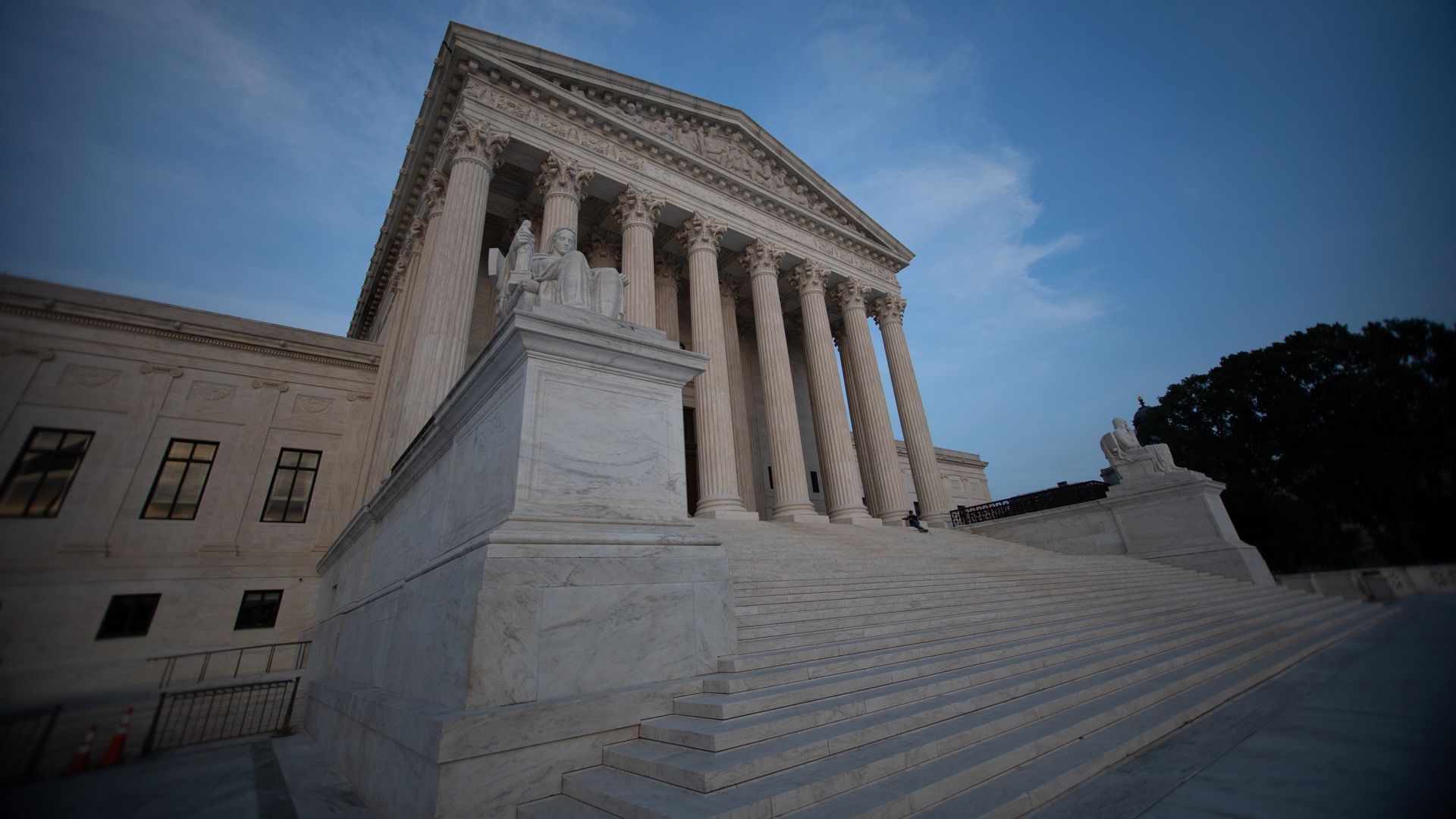Supreme Court rules states can penalize faithless electors
Add Axios as your preferred source to
see more of our stories on Google.

Photo: Aurora Samperio/NurPhoto via Getty Images
The Supreme Court unanimously ruled Monday that states can penalize faithless electors, the members of the Electoral College who do not support the winner of their state's popular vote in a presidential election.
Why it matters: The 2016 presidential election saw 10 electors vote for someone other than their state's chosen candidate — highlighting how faithless electors could have the potential to swing an election.
- 32 states and Washington, D.C. require their electors to cast their Electoral College votes for the winner of their respective statewide popular vote.
- Before 2016, a modern presidential election had never seen more than one faithless elector — prompting states to move ahead with their legal challenge.
What they're saying: "A State follows in the same tradition if, like Washington, it chooses to sanction an elector for breaching his promise. Then too, the State instructs its electors that they have no ground for reversing the vote of millions of its citizens. That direction accords with the Constitution — as well as with the trust of a Nation that here, We the People rule," Justice Elena Kagan wrote on the court's ruling.
The big picture: During oral arguments before the court last month, Colorado's attorney general argued that a loss by the states could "occasion a constitutional crisis," per CNN.
- The justices also expressed worries that ruling against the states could lead to wide-scale bribing of members of the Electoral College — with little to no recourse.
- Representatives for the electors had argued that the Constitution "requires that presidential electors be free to cast votes without interference or sanction."
The bottom line: With the Electoral College already taking heat from both parties, the ruling doesn't upend the status quo, granting voters' peace of mind to know that electors will follow through with their wishes.
